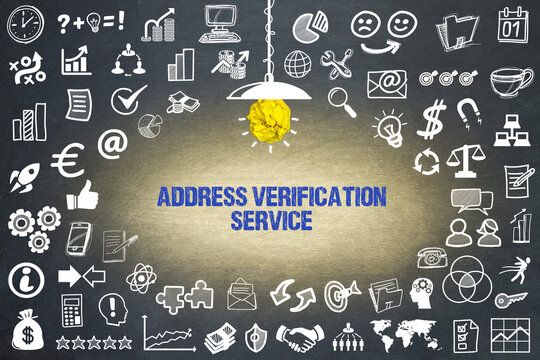Technology is progressing as time passes, and customers are also benefiting from online platforms. Customer experience is crucial to a company’s market performance, given the prominence of technology breakthroughs and their adoption. While poor customer service affects the economy by 1.6 trillion dollars per year, the most major problem remains the perplexing checkout protocols that lead to abandoned carts. Misguided deliveries are another source of concern for businesses, which must pay extra shipping costs due to a lack of adequate address verification measures.
Reliable and accurate information enters the system thanks to an automatic technique for customer verification of address information. It reduces the chances of customers delivering inaccurate or partial information, allowing e-commerce companies to confidently provide the right products.
Address Verification System (AVS)
The Address Verification Service (AVS) is a system that verifies clients’ address-related information before they conduct any online transactions. Verifying address is in use by businesses to avoid fraud and enroll legitimate customers, which helps to reduce chargeback scams and misplaced deliveries.
What Is Address Verification Online, and How Does It Operate?
Step 1: Share a Photo of yourself as Proof of Your Identity.
The system reminds the user to upload a photo while holding the identity card. The ID photo has a link to the user’s face recognition.
Step 2: Submit a Secondary Identification Card
An extra document includes information about the user’s residential/business address. These documents go through double-checking to confirm the accuracy of the address verify information.
Step 3 – Results in Verification and Dispatching
A variety of tests were performed on the address collected from the documents. Using an API request, the verification findings are then transmitted to the customer and the client in their back office.
The Address Verification Service Process
The user’s identity documents get scanned by the address verification system, which extracts vital information. During the address validation procedure, the following document-related tests exist:
- Check if the user has mentioned their names
- Verify to see if any documents are copied, forged, or tampered with
- The document should present the address accurately
The document is completely visible and free of crumpled edges. OCR technology runs the document validation checks, the required information from the user’s entire address, and is completely verified against predefined specifications. If an address match fails or a crucial detail is lacking, the AVS sends a compiled algorithm.
What Steps Does AVS Take to Prevent Chargeback Fraud?
After a month or two of use, fraudsters commonly make an online transaction and then file a rebate claiming that they did not accept the product. This is inconvenient due to the lack of a proper method to confirm that the goods were directed to the right address. In establishing the risk that is somehow associated with a digital transaction, verifying the address is critical.
Address verification is a must to comply with KYC/AML regulations in industries like e-commerce and financial services. Businesses may serve real consumers, identify and eliminate hazards, and conduct commercial operations without fear of fraud with a mission address verification system. Enterprises can also use AVS to improve their ID verification methods for secure customer onboarding.
Efficient AVS and Machine Learning
Artificial intelligence (AI) and its derivatives, such as machine learning (ML) and computer vision, are increasingly available in digital solutions. Address verification systems based on machine learning can self-learn address data without demanding much effort. Because it recognizes the appearance of data fields on a certain page, the sophisticated solution can now quickly understand them. Geospatial technologies have a link with Intelligent AVS, which combines address data with geographical statistics to give perfect address verification. This improves the data reliability that the system learns, allowing it to better scrutinize future customers. Furthermore, online applications can even save addresses and other personal information such as name, date of birth, and ZIP/postal code to make useful suggestions to the end-user.
Wrapping it Up
Shufti Pro’s funding Address Verification Service optimizes customer address information using high-end technology artificial intelligence and machine learning. By adopting high-quality address data, businesses can minimize chargeback scams and shipping costs caused by criminals submitting incorrect and false addresses. This provides a backup security mechanism for AML/CFT compliance, as well as a reputational risk management framework. Using a proper verification of address, online firms could use an Address Verification system to deliver the right goods to the right customer. Customers have more meaningful knowledge, and businesses and e-commerce sites are able to continue to provide trustworthy services.

